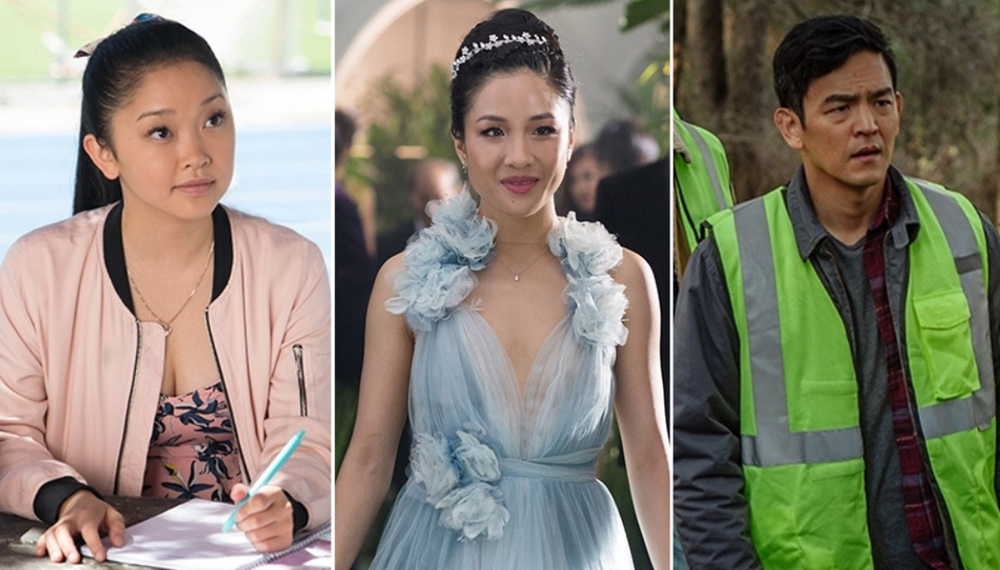What Can Hollywood Learn From #AsianAugust?
By Rebecca Rubin
LOS ANGELES (Variety.com) – August marked a month of firsts for the movie biz.
The traditionally slow period got an unprecedented box office boost when Warner Bros.’ “Crazy Rich Asians,” the first studio movie in a quarter of a century to feature an almost entirely Asian-American cast, delivered the best opening for a romantic comedy in years. To close out the month, Sony-Screen Gems unveiled “Searching,” led by Korean-American actor John Cho and Michelle La. In between, a little gem called “To All the Boys I’ve Loved Before” set the internet ablaze after Netflix dropped the YA rom-com starring Vietnamese-American actress Lana Condor.
When the trio of offerings hit both the big and small screen last month, Asian and Asian-American audiences turned out in droves to champion the barrier-breaking phenomenon dubbed #AsianAugust. The organization CAPE (Coalition of Asian Pacifics in Entertainment) coined the term and encouraged the community to rally behind the movement on social media by using the hashtag .
Aside from an injection of diversity, these titles shared the distinction of universal acclaim. Stellar reviews and incredible word of mouth carried “” to $162 million worldwide to date. Though a China release is still uncertain, it’s one of the highest grossing romantic comedies in almost a decade.
“,” the inexpensive thriller shot from the point of view of computer screens and smartphones, posted an exceptional 92% certified fresh rating on Rotten Tomatoes and looks to become highly profitable with $32 million worldwide, including a healthy $4.4 million from South Korea.
And though the streaming giant doesn’t divulge numbers, “To All the Boys I’ve Loved Before” spawned a flurry of social media reaction and helped kick the career of co-star Noah Centineo into overdrive. It’s a rare YA movie adored by critics and audiences alike.
Studios have long been hesitant to place big bets on movies led by minorities. Even with the August boost, the entertainment industry continues to struggle prioritizing diversity both in front of and behind the camera. A recent UCLA study revealed that just 12.9% of film leads are held by minorities. (Though to be fair, the study was conducted before “Black Panther” and “Crazy Rich Asians.”) The historic feat begs the question: What has Hollywood learned?
Asian August showed there can be more than one movie out at a time featuring diverse protagonists without hindering each other’s opportunity to succeed. They can even spark a ripple effect. The past two weekends, “Crazy Rich Asians” and “Searching” have both been among the top five highest grossing movies in North America.
“It clearly tells us all to take chances,” Jeff Goldstein, Warner Bros.’ president of domestic distribution, said.
Goldstein describes “Crazy Rich Asians,” which stars Constance Wu, Henry Golding, Michelle Yeoh, Keng Jeong, and Awkwafina, as a “fun, broad comedy.” The rapturous response confirmed the idea that these movies don’t need superheroes touting Spandexed suits to find mainstream appeal and resonate with audiences. “It doesn’t matter the ethnic group,” he says. “The stories are the same.”
It didn’t even take a week after “Crazy Rich Asians” opened for Warner Bros. to solidify plans for a sequel . Since the movie is based on the first of a trio of best-selling books by Kevin Kwan, it stands to reason that if all goes to plan, a third movie will complete the trilogy.
“I’m sure every other studio is asking, ‘How can I do this?’” Paul Dergarabedian, a box office analyst with comScore said. “[Hopefully] it gets to the point where these movies are able to rise and fall on their own merits.”
And networks and studios are starting to get the message: New Line and Warner Bros. recently bought a spec for the China-set “Single’s Day,” an ensemble comedy by TV writer Lillian Yu, while several TV projects with Asian casts or themes are in the works. In addition to the “Crazy Rich Asians” sequel, Chu is also teaming up with Ivanhoe Pictures on a movie about the Thai cave rescue mission in an effort to avoid whitewashing . Disney is releasing the live-action “Mulan” with Yifei Liu, Donnie Yen, and Gong Li in 2020. Meanwhile, Netflix has “Always Be My Maybe,” a rom-com starring Randall Park and Ali Wong, due out next year.
Perhaps soon, Hollywood will learn diverse stories don’t have to be confined to a single month.

